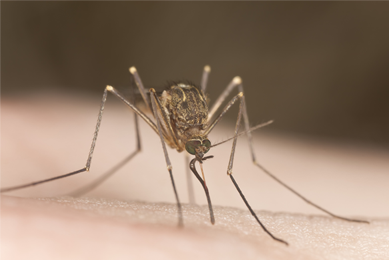Why it's important
Prior to the pilot roll-out of the RTS/S (Mosquirix) Vaccine in 2019, no suitable malaria vaccine existed. Therefore, malaria control was critically dependent on vector control and a limited number of drugs to which resistance has developed and is spreading at an alarming pace. Development of new drugs that are both safe and effective against drug-resistant malaria infections is of utmost importance. There is also an urgent need for new malaria diagnostics to support surveillance programs and the drive toward malaria elimination. What the researchers need to develop new malaria diagnostics, therapeutics, and vaccines is timely access to a variety of relevant and authenticated biomedical resources and models to enable their research.
What's the solution?
ATCC Federal Solutions (AFS) serves government, commercial, and private clients worldwide in accelerating the development of malaria diagnostics and interventions by providing the scientific research community with standardized reagents and protocols. BEI Resources, a NIAID-funded program managed by AFS, has a centralized repository for the acquisition, production, characterization, preservation, storage, and distribution of well-characterized biological resources targeting NIH priority pathogens including malaria and other parasitic protozoa. These reference materials are available to qualified investigators and institutions worldwide through the BEI Resources website.
How we can help
We provide a variety of malaria products to our government partners and commercial clients. Our product portfolio includes over 500 malaria parasite lines and clones, mosquito vectors and cell lines (MR4 Anopheles program), monoclonal antibodies and polyclonal antisera, plasmid expression vectors, rodent malaria parasites, nucleic acids, drug-resistant parasites including artemisinin- and piperaquine-resistant lines, and transgenic malaria parasites with fluorescent tags. These serve as critical resources for the development of diagnostics and interventions and for disease surveillance. Prospective customers, registrants, and depositors can access the complete set of registration, deposit, and order forms on the BEI Resources forms page.
Did you know?
Before it was discovered that malaria was caused by tiny, microscopic Plasmodium parasites transmitted through mosquito bites, ancient scholars believed it was caused by foul or bad air, hence the term “malaria” for “bad air.” They linked malaria to swampy areas and marshlands, which often had disgusting smells.
Meet the authors
Standwell C. Nkhoma, PhD
Scientist, BEI Resources
Standwell Nkhoma, PhD, is an experienced parasitologist with a range of research interests in infectious diseases including malaria, and a strong passion for developing new biomedical research tools. He works within ATCC Federal Solutions as a scientist on a NIAID-funded contract to deliver malaria products, services, and standards for the BEI Resources Repository and to our commercial clients. His research & development (R&D) work focuses on developing new and improved approaches to enhance the authentication of MR4-BEI Resources reagents and establishing CRISPR/Cas9 technologies for editing parasite genomes in-house to examine the functional impact of genetic variation on important biomedical phenotypes including drug resistance and pathogen replication. Recent outputs from this work include two published manuscripts demonstrating how complex interactions between parasite lineages within a single malaria isolate affect phenotypic variation and evolution (International Journal for Parasitology: Drugs and Drug Resistance 2021; 15:152–161 and Molecular and Biochemical Parasitology 2023; 254:111552). Data in these manuscripts underscore the need for cloning clinical isolates to yield single parasite lineages with well-defined genotypes and phenotypes. Such clonal lineages are useful for screening candidate antimalarials and as standards for conducting drug resistance surveillance. Dr. Nkhoma earned his PhD in Molecular Biology and Biochemistry from the University of Liverpool, UK.
Robert Molestina, PhD
Lead Scientist, ATCC
Robert Molestina, PhD, is a Lead Scientist at ATCC. He has a background in scientific research in infectious diseases and execution of government-funded programs. Dr. Molestina serves as the subject matter expert in research and development activities in the Protistology and Malaria Laboratories which include, among others, the development of assays for molecular authentication of parasites, optimization of culture and cryopreservation protocols, and implementation of animal models for parasite propagation. In addition to managing parasitic protozoa and malaria resources under the BEI program, Dr. Molestina serves as the point of contact for arthropod vector resources offered through the BEI repository. His publication record for the last 20 years covers a diversity of scientific interests, including bacterial pathogenesis, molecular parasitology, eukaryotic microbiology, and proteomics of infectious disease.
Explore our featured resources

Federal Solutions
Support for federal agencies through contracts focused on global health and infectious diseases, biodefense, chronic diseases, clinical study support, global logistics, and biorepository establishment/maintenance.
MoreGlobal Health and Biosecurity
ATCC Federal Solutions provides global health and biosecurity capabilities to government agencies including diagnostic reagents, surveillance kits, subject matter expertise, and R&D contract services to support infectious and chronic disease agent characterization and medical countermeasure development.
More
Vector-borne Diseases
To aid in vector-borne disease research, ATCC has compiled a collection of microbial species known to be transmitted by arthropod vectors.
MoreReferences
- World Health Organization. World Malaria Report 2022. https://www.who.int/teams/global-malaria-programme/reports/world-malaria-report-2022. Published 2022. Accessed October 2023.
- Centers for Disease Control and Prevention. Locally Acquired Cases of Malaria in Florida, Texas, and Maryland. https://www.cdc.gov/malaria/new_info/2023/malaria_florida.html Published August 22, 2023. Accessed October 2023.